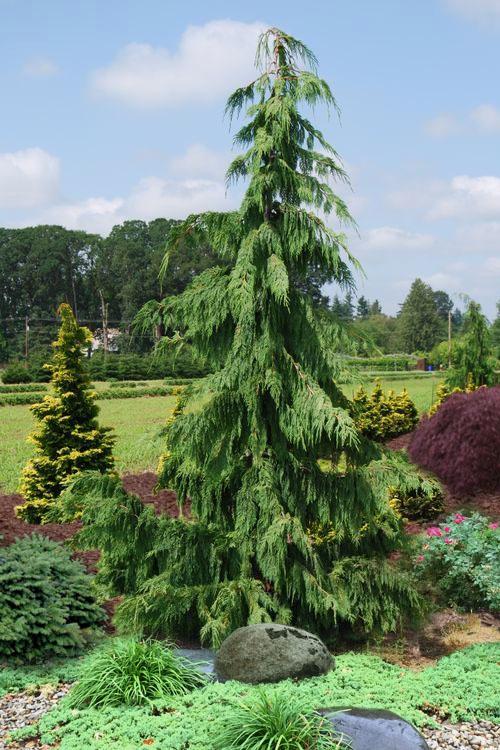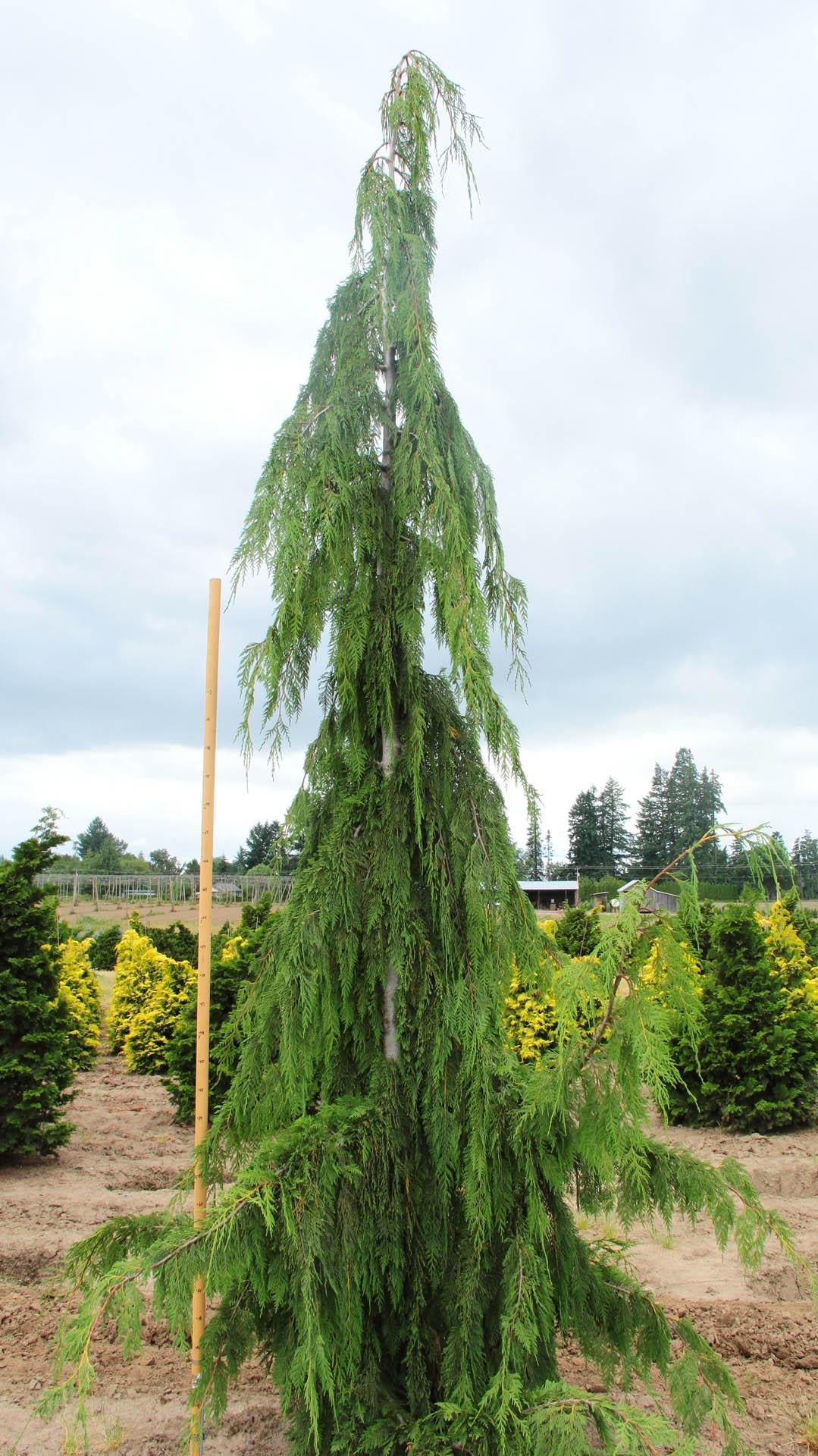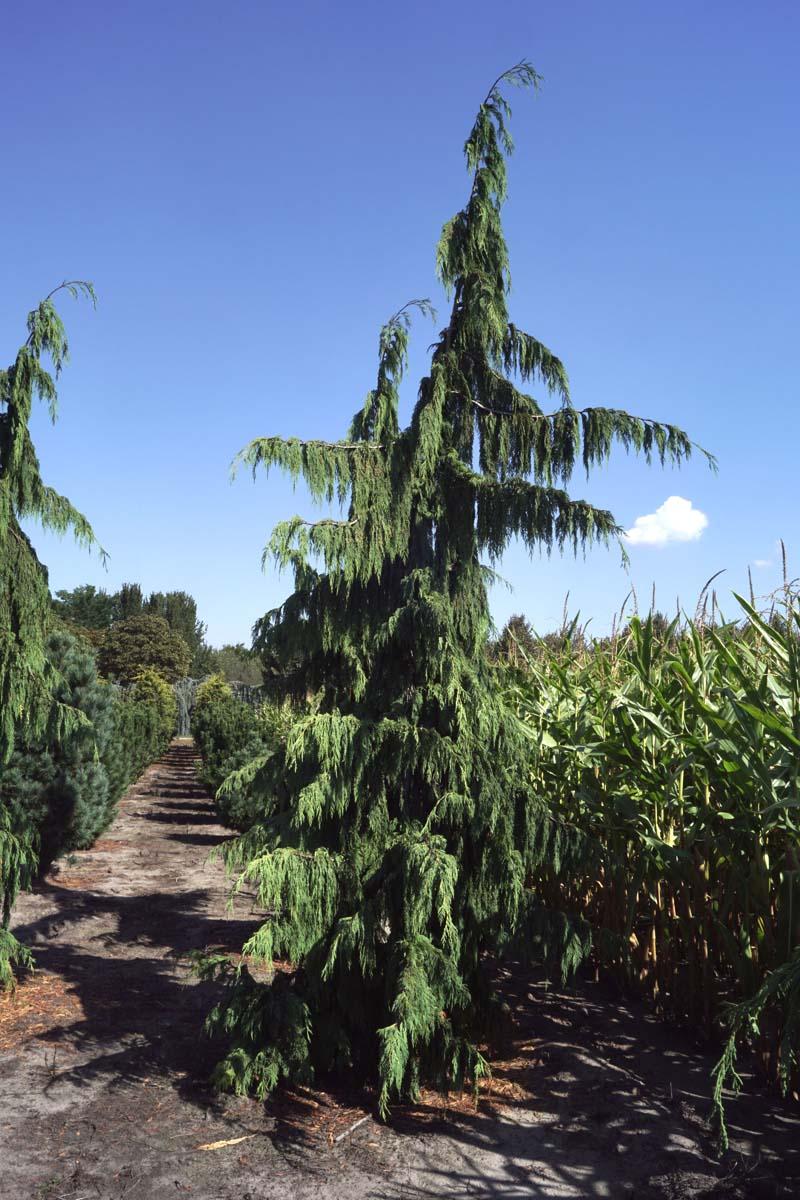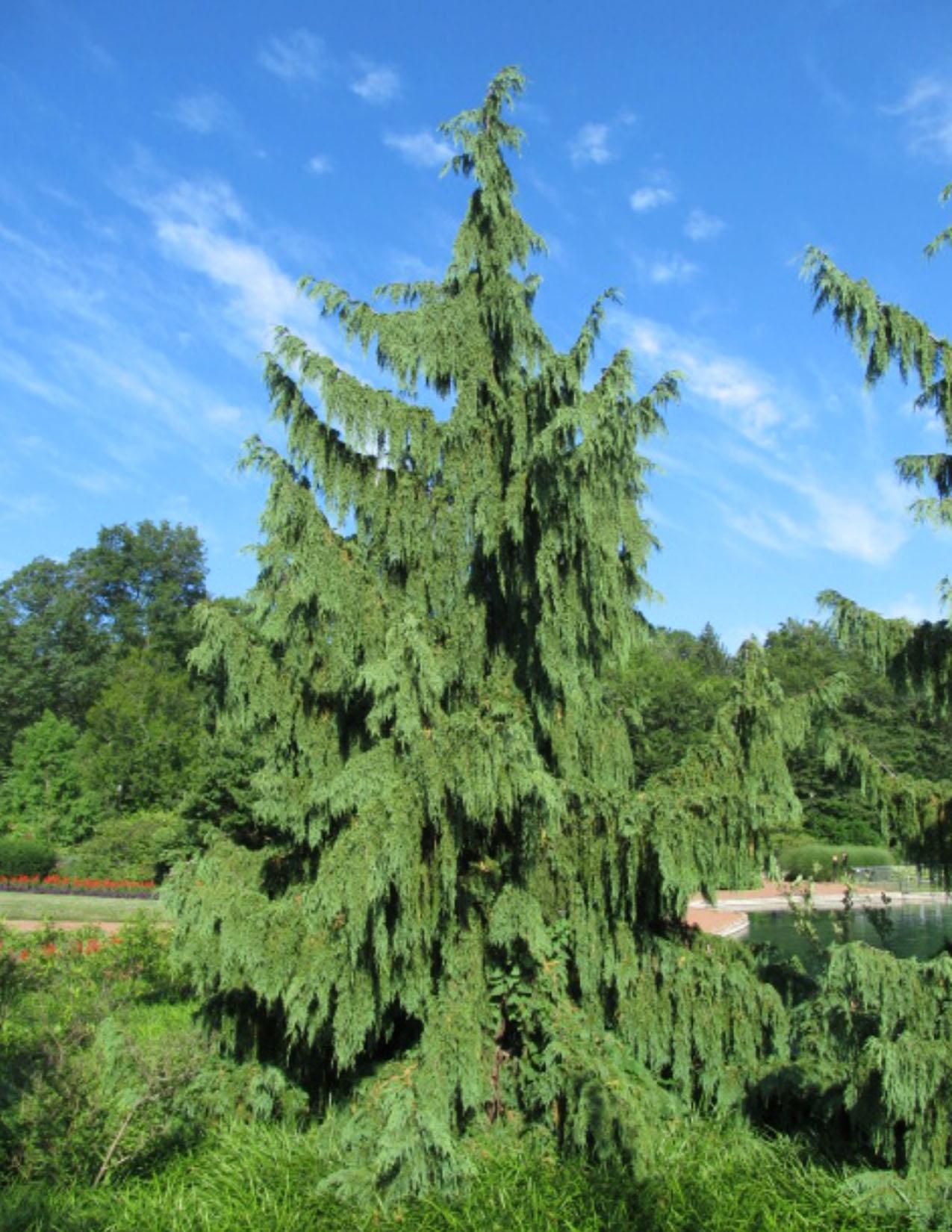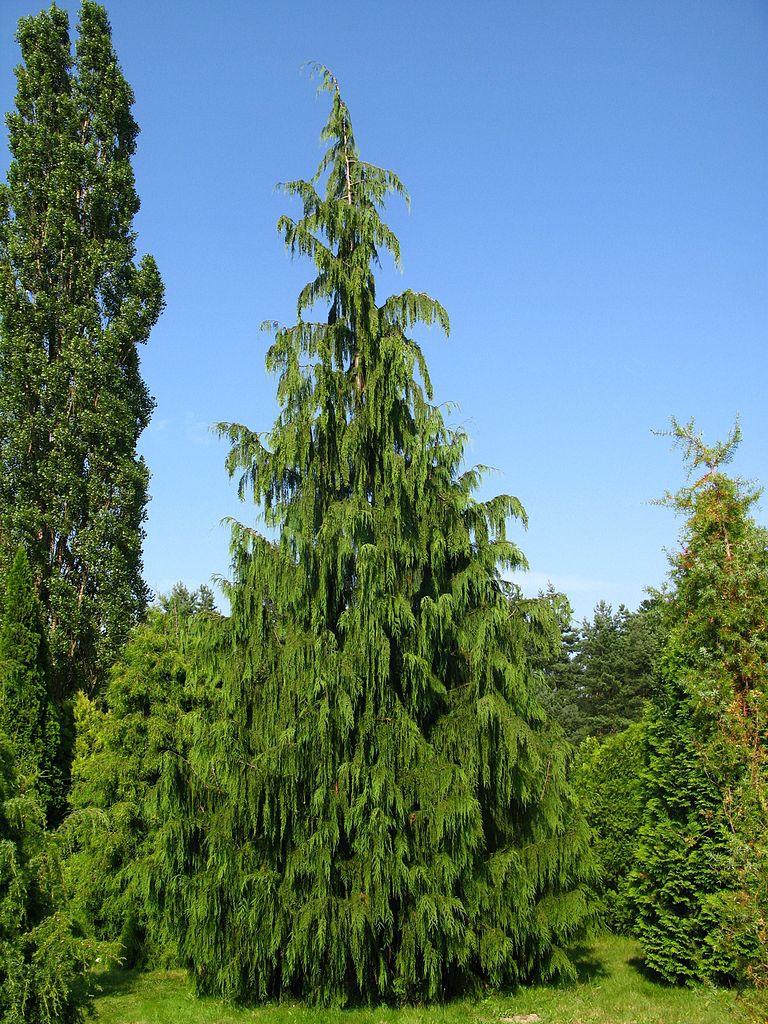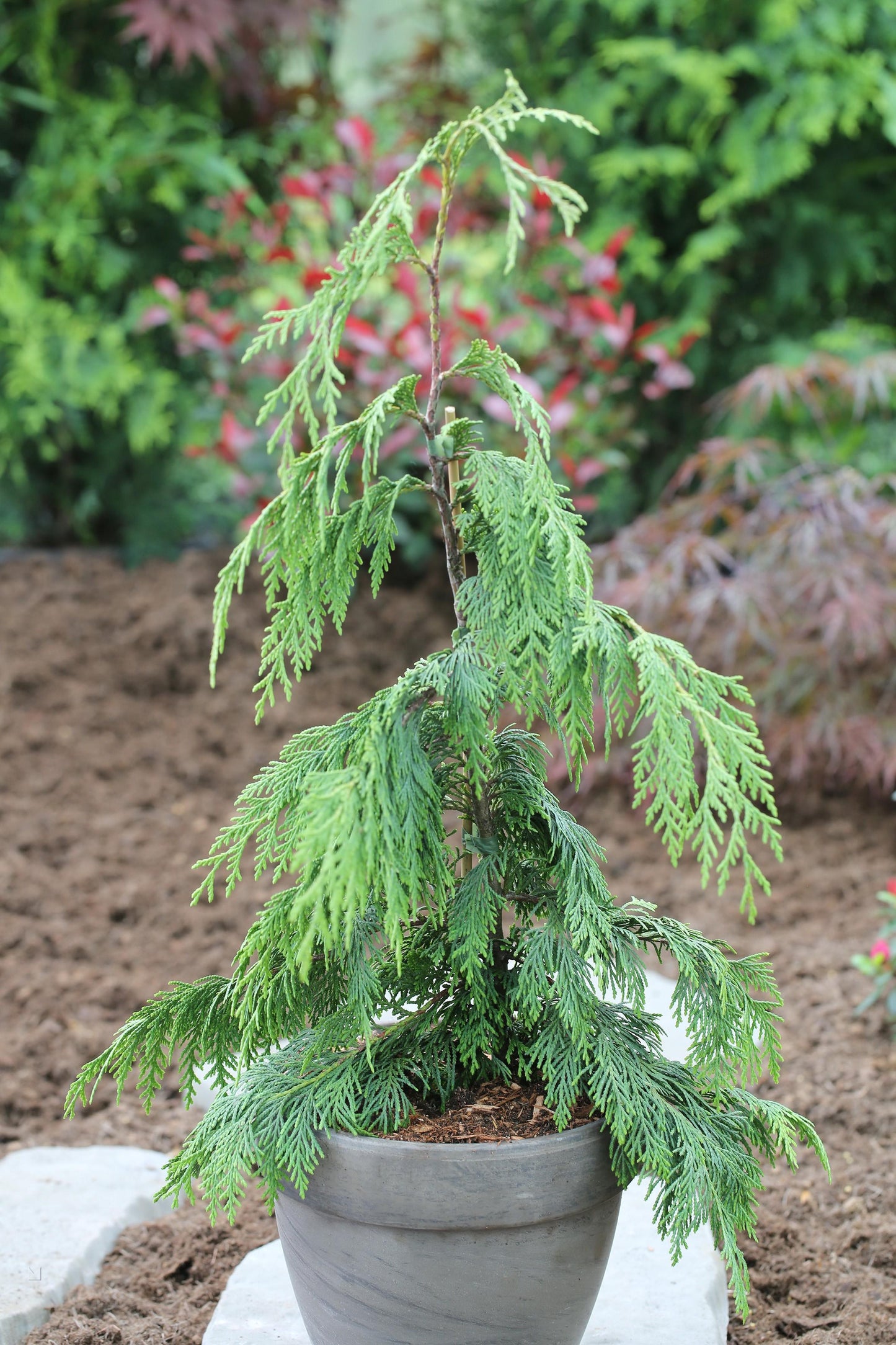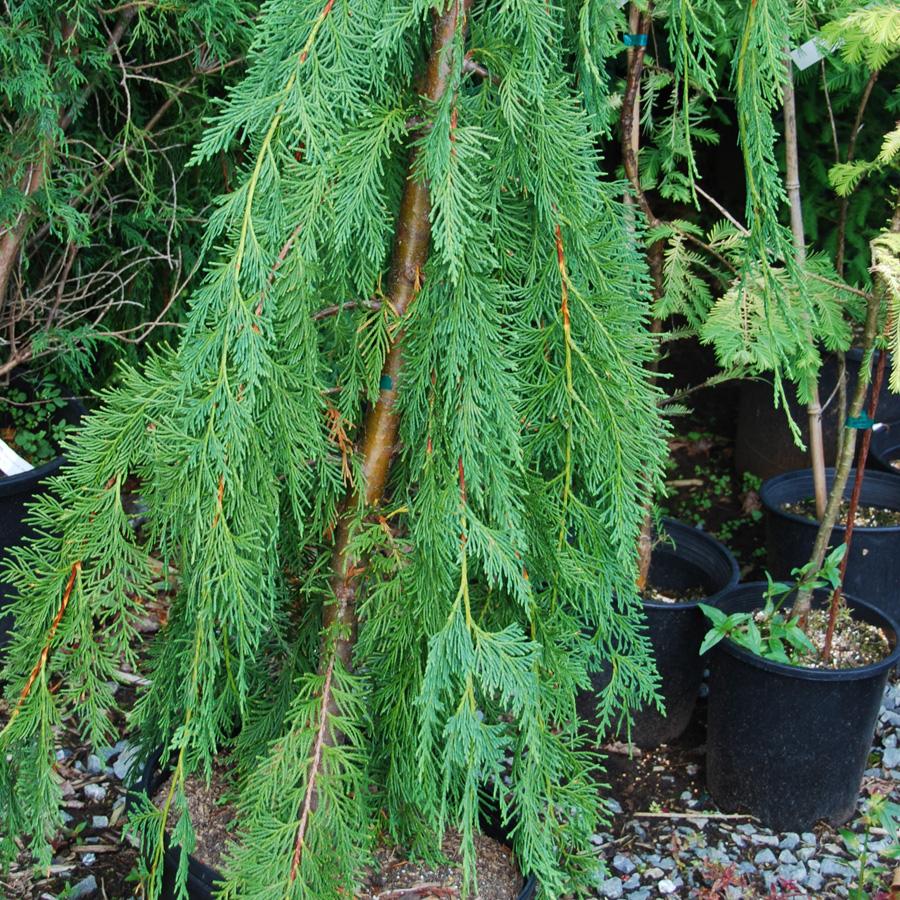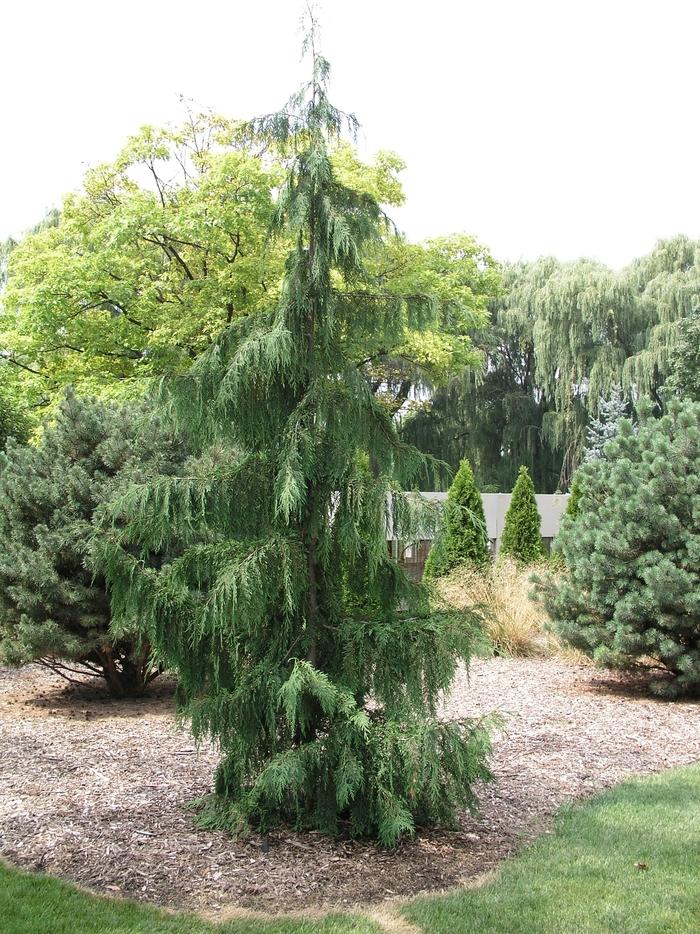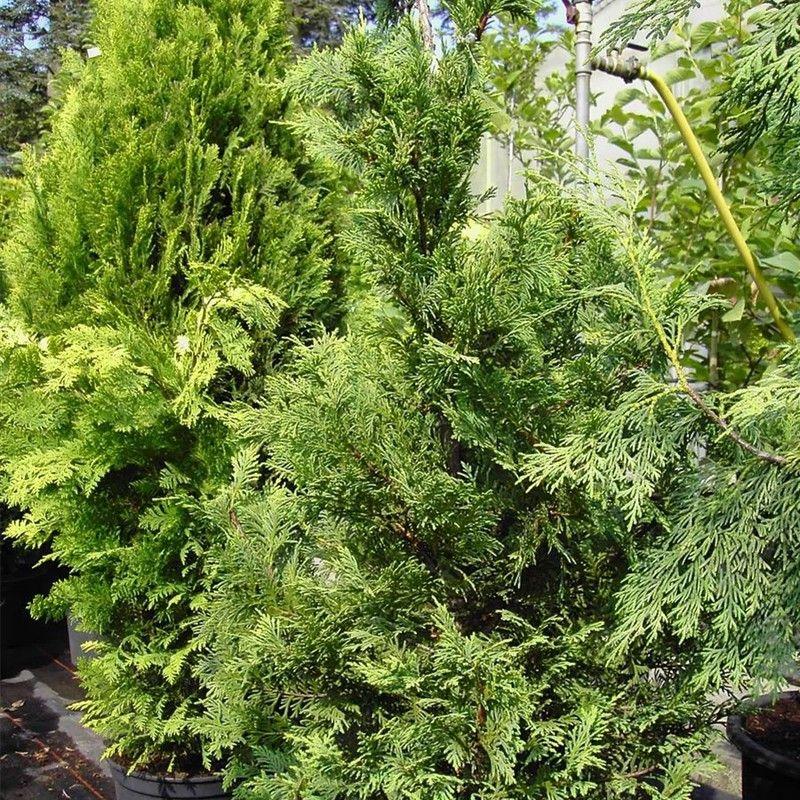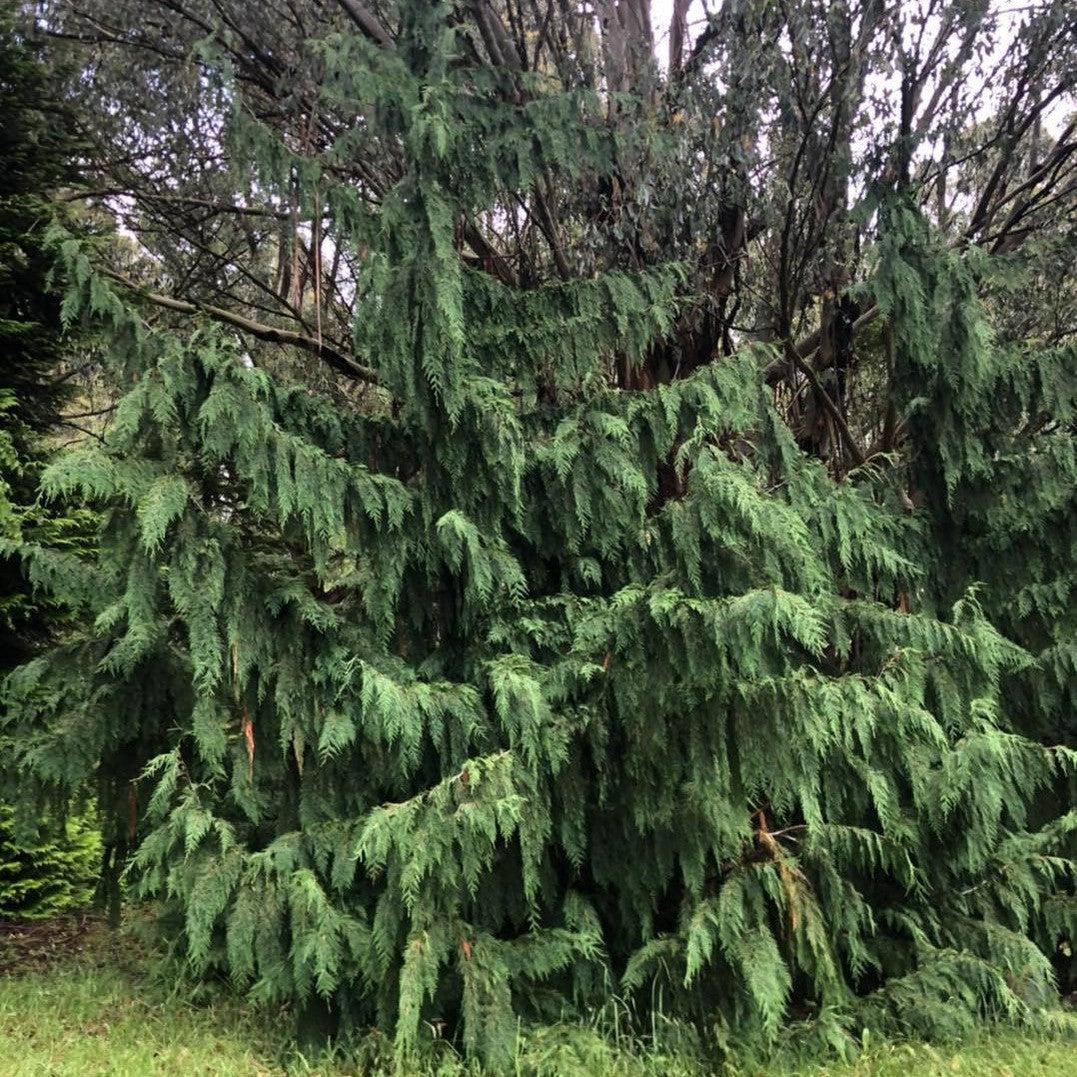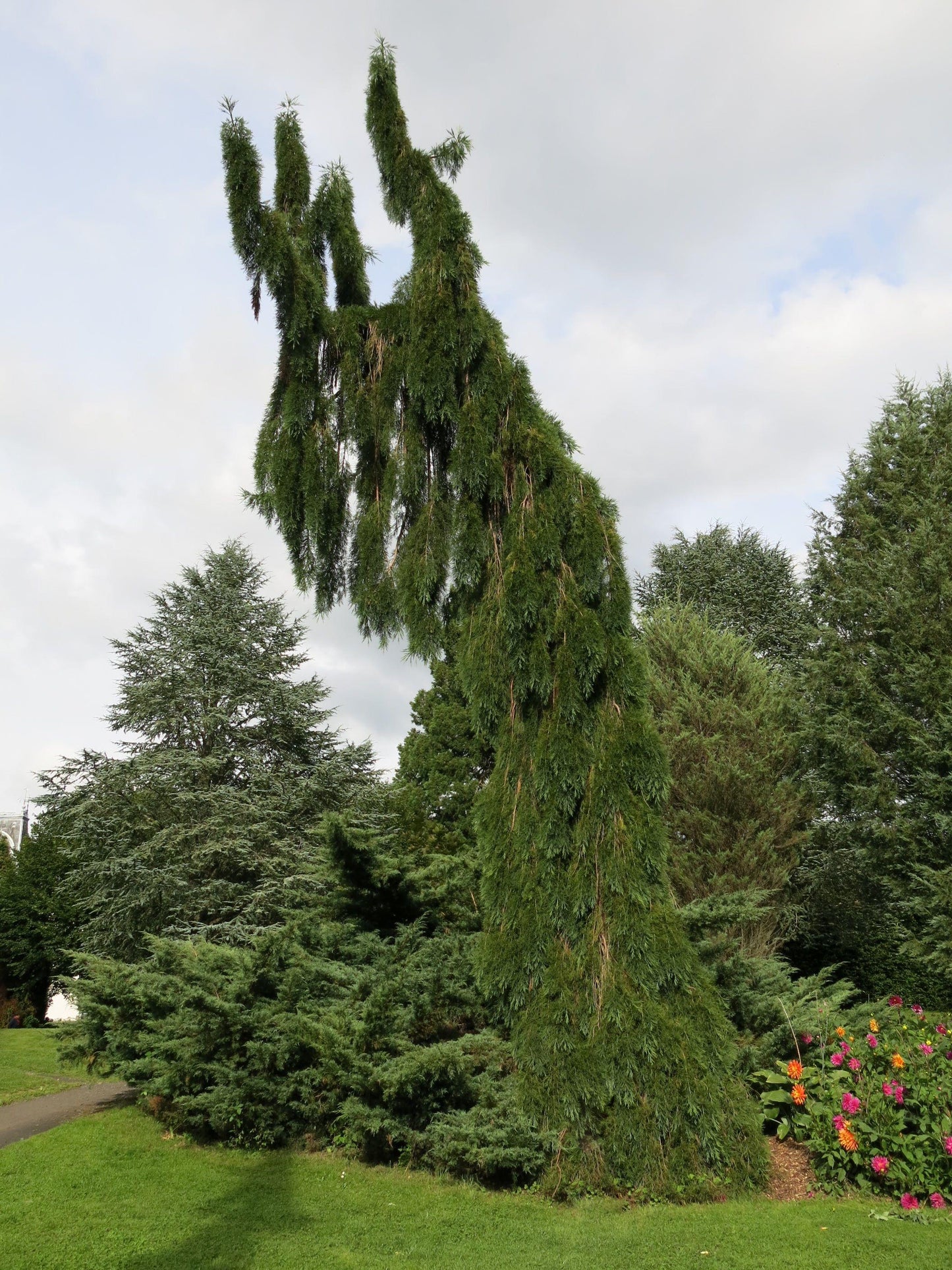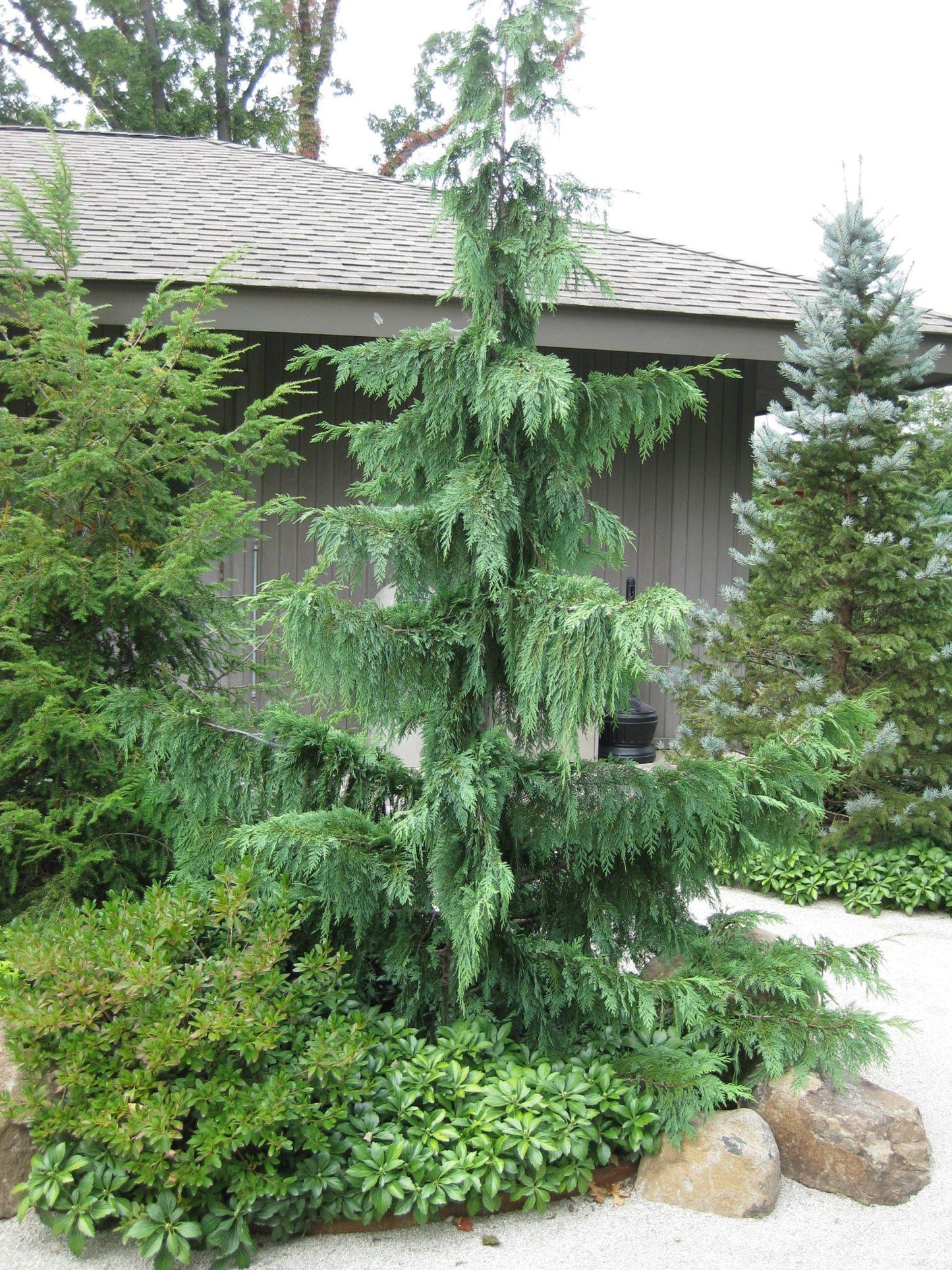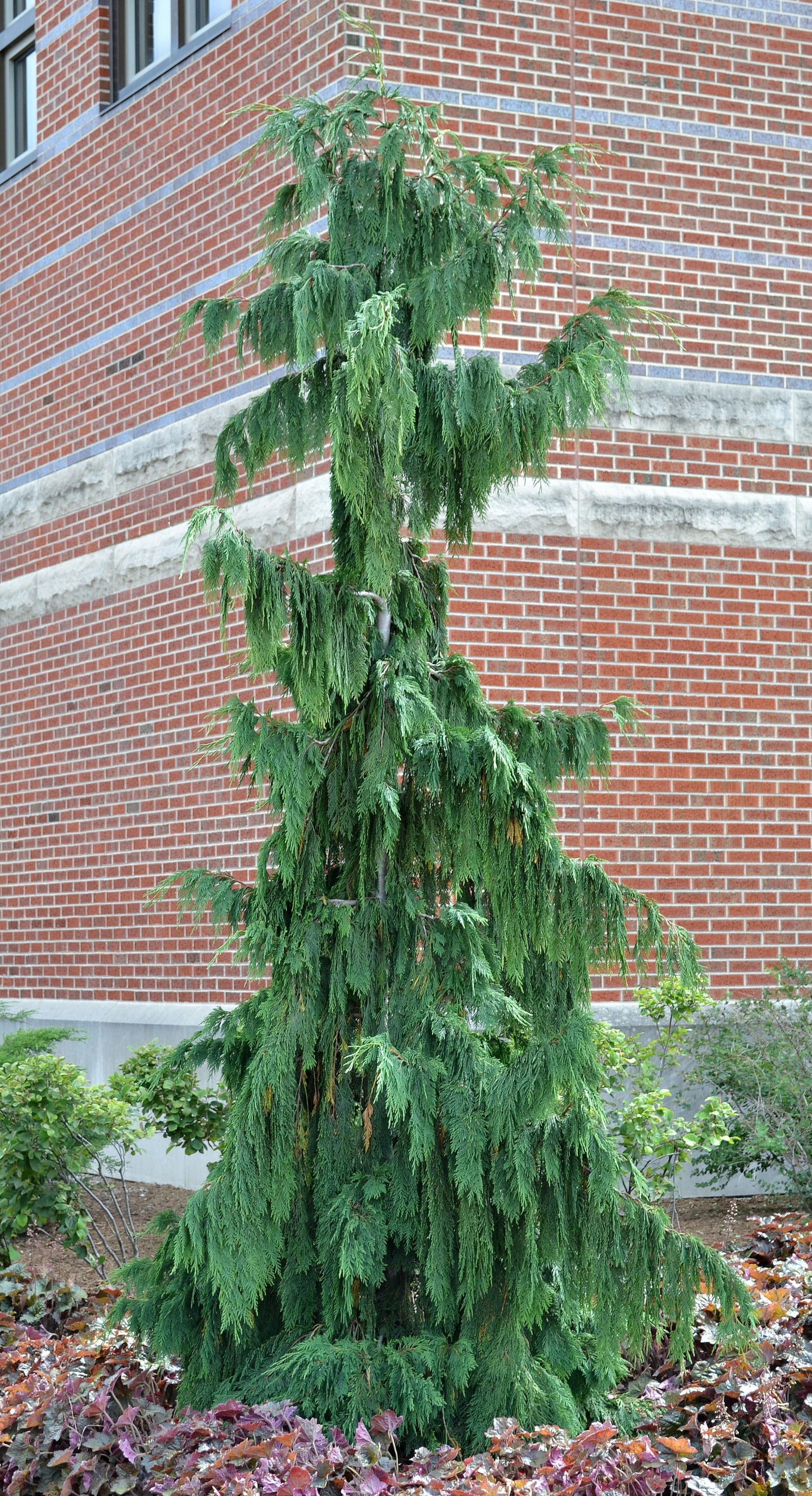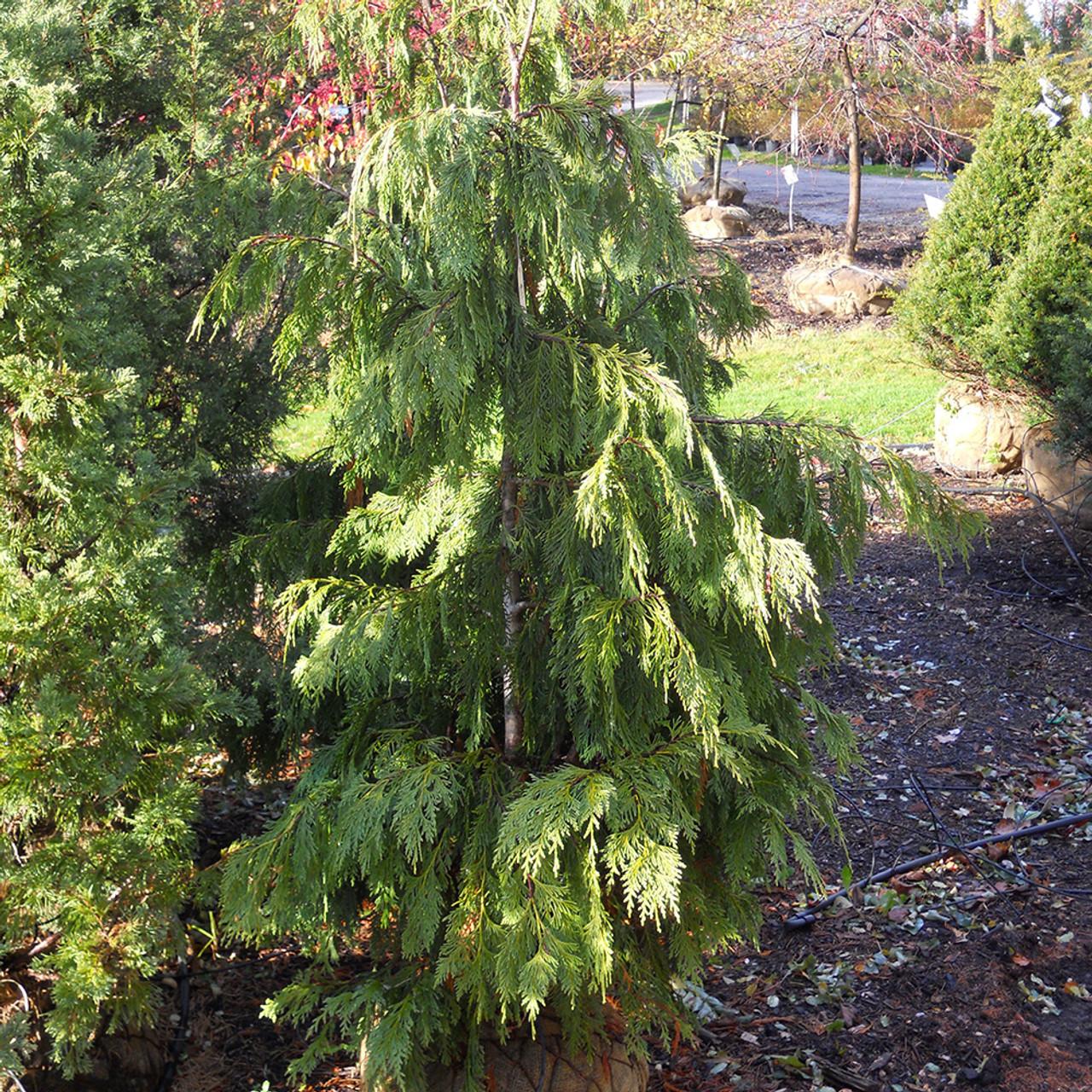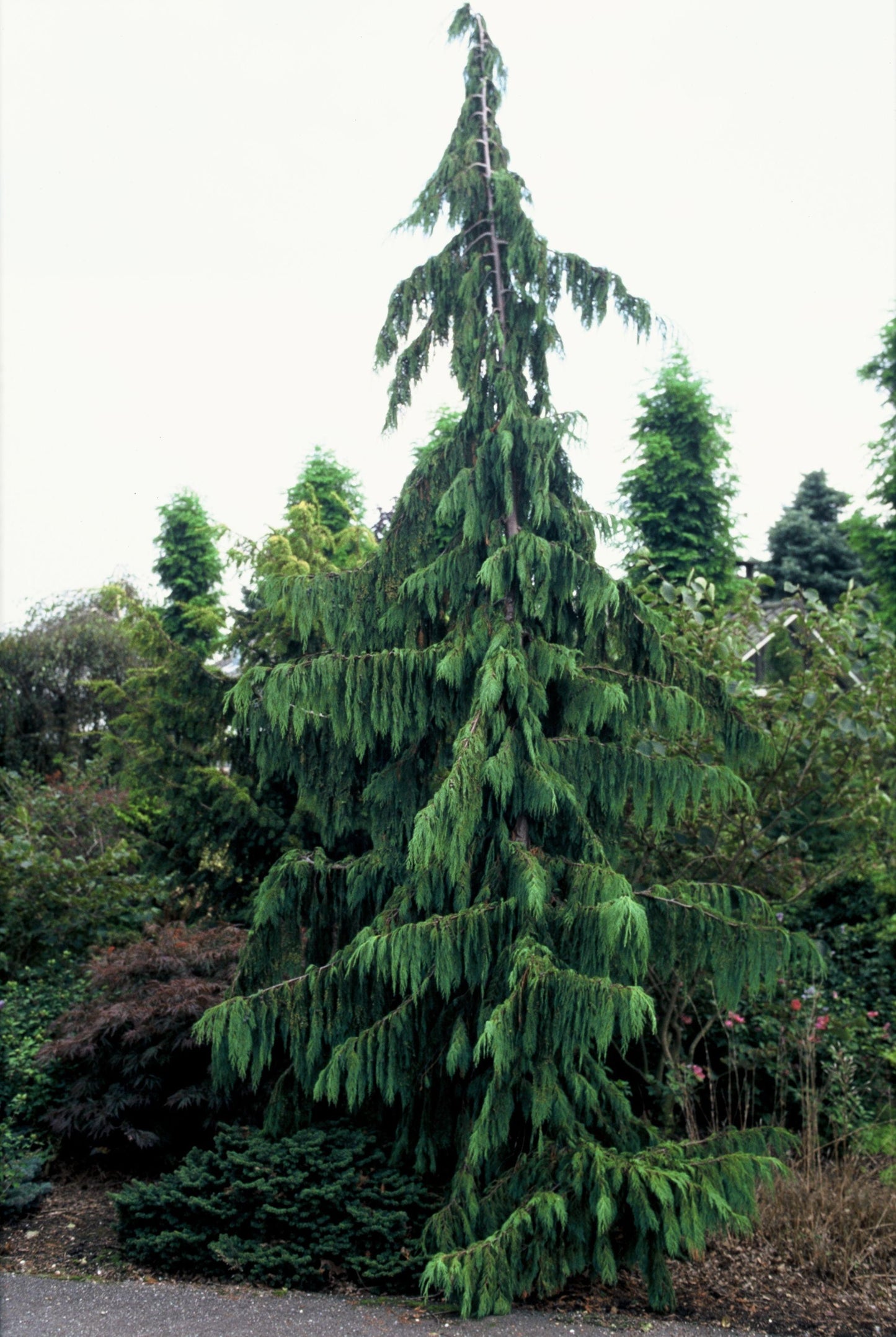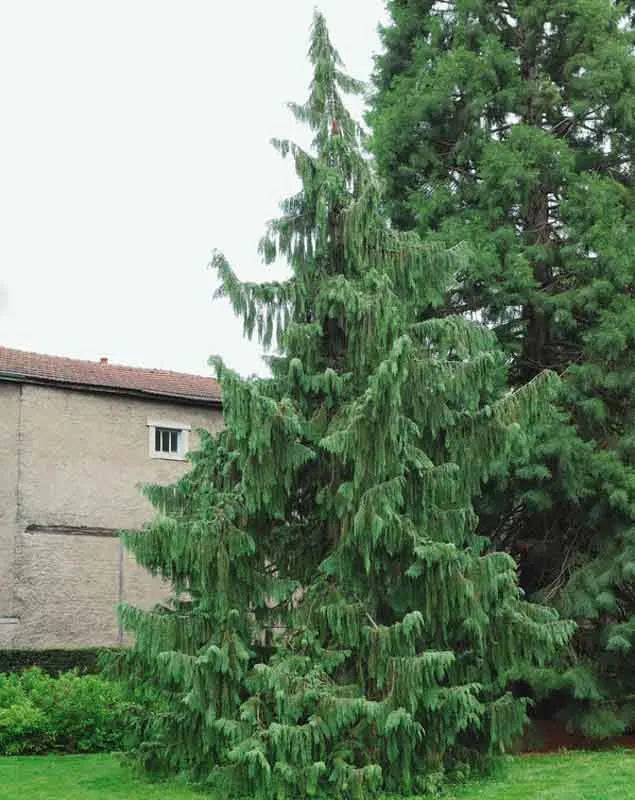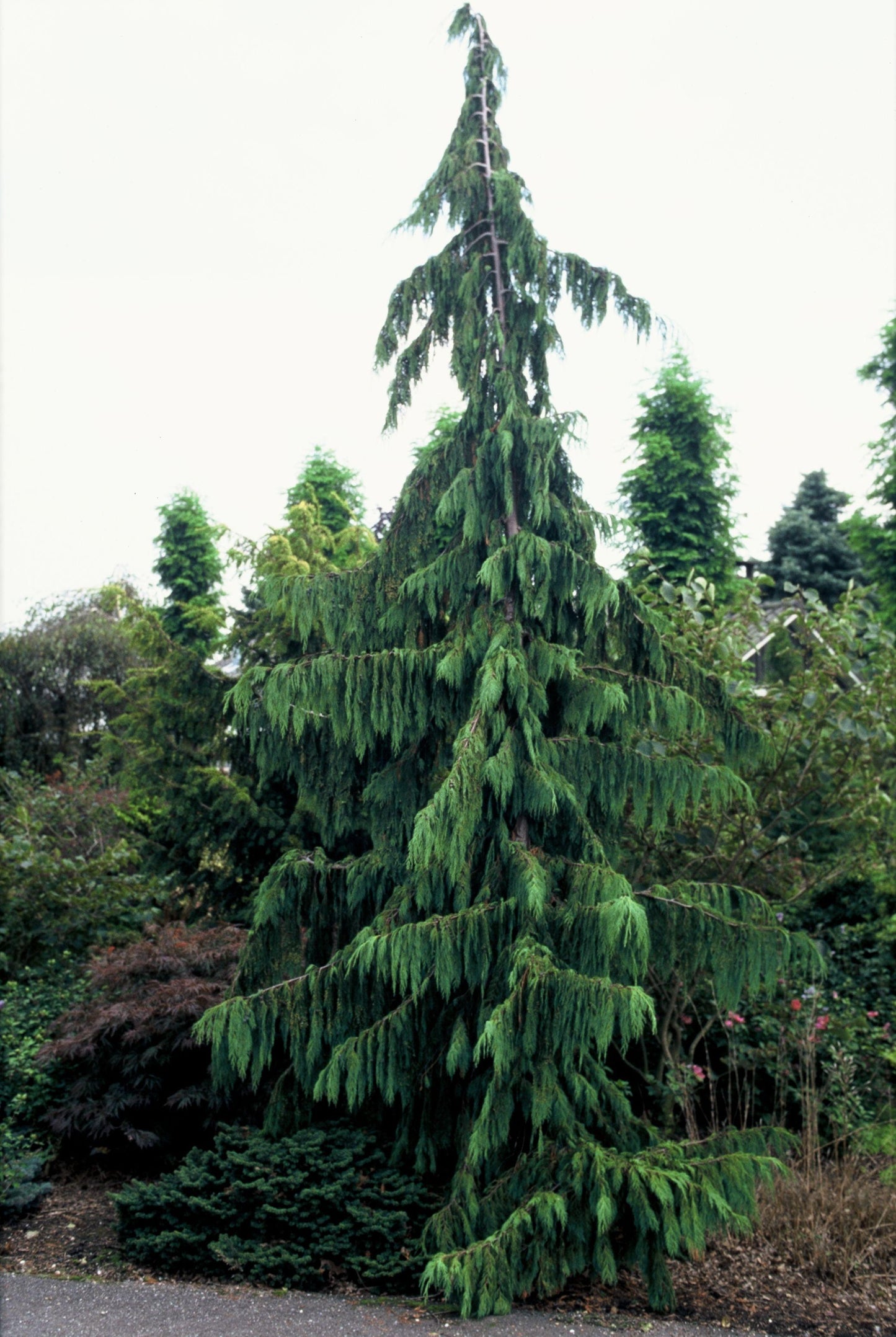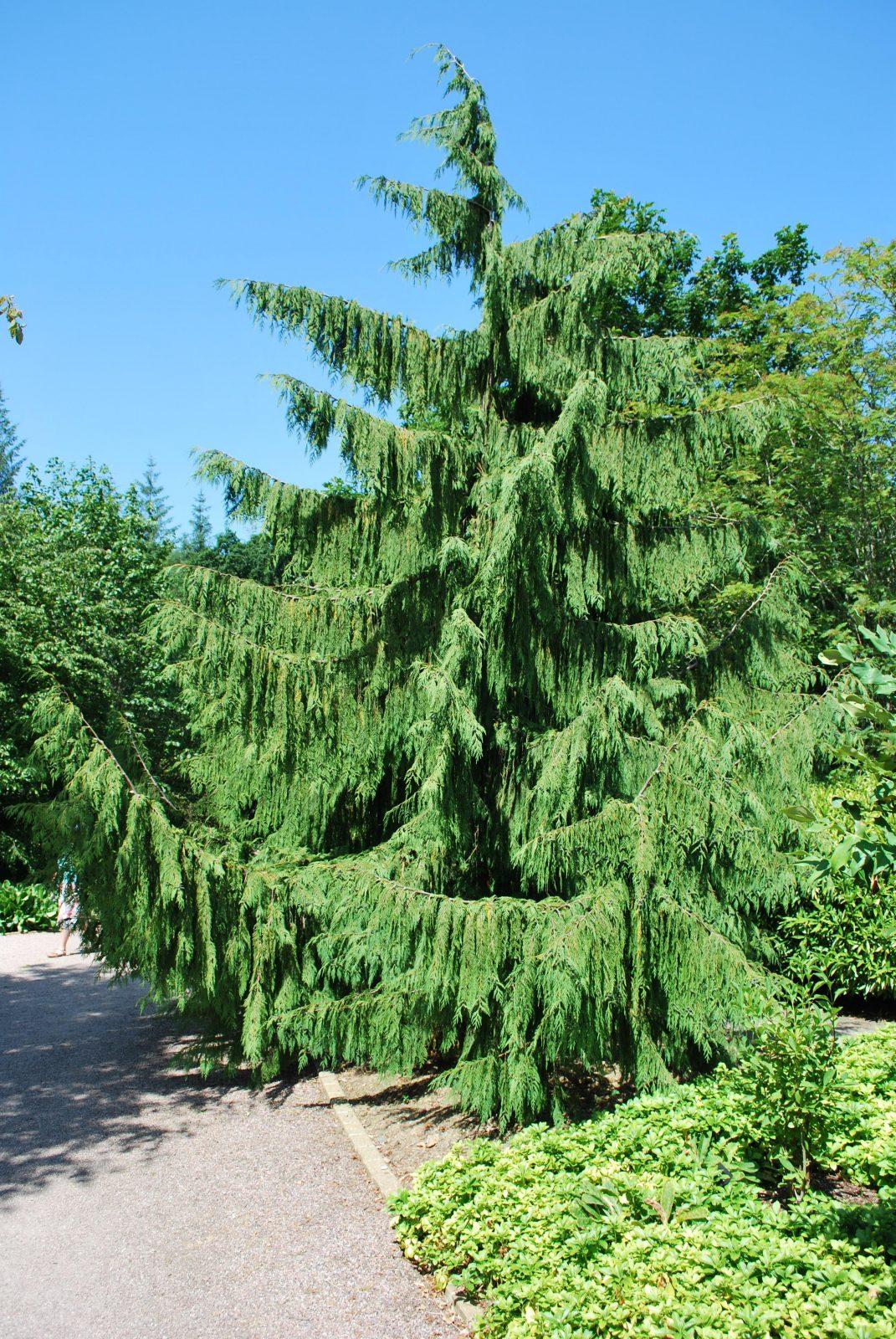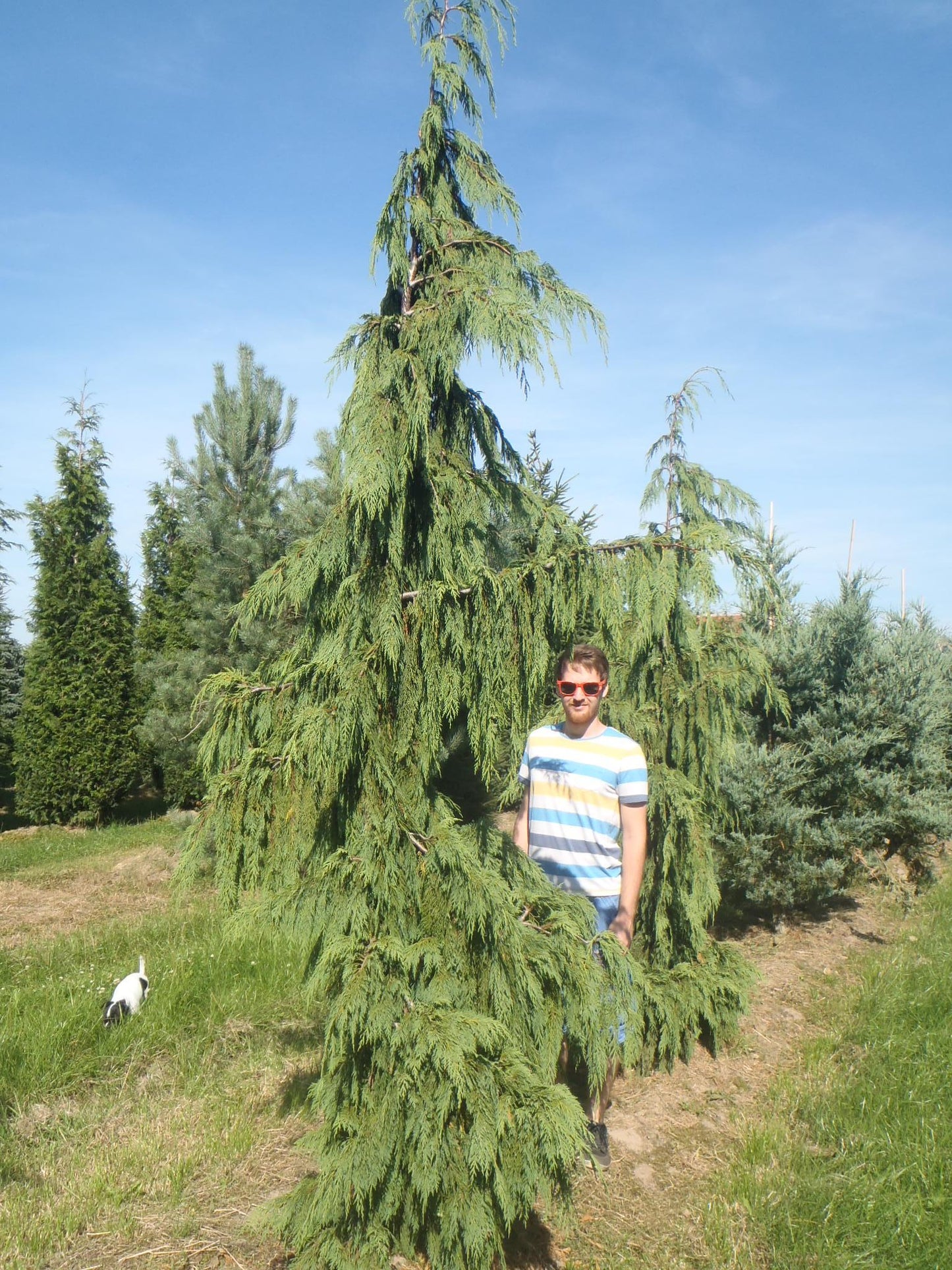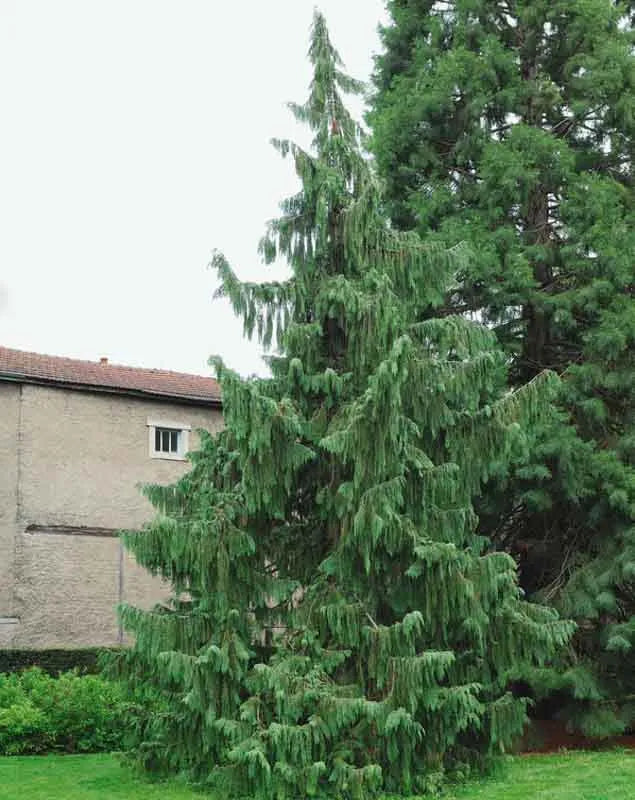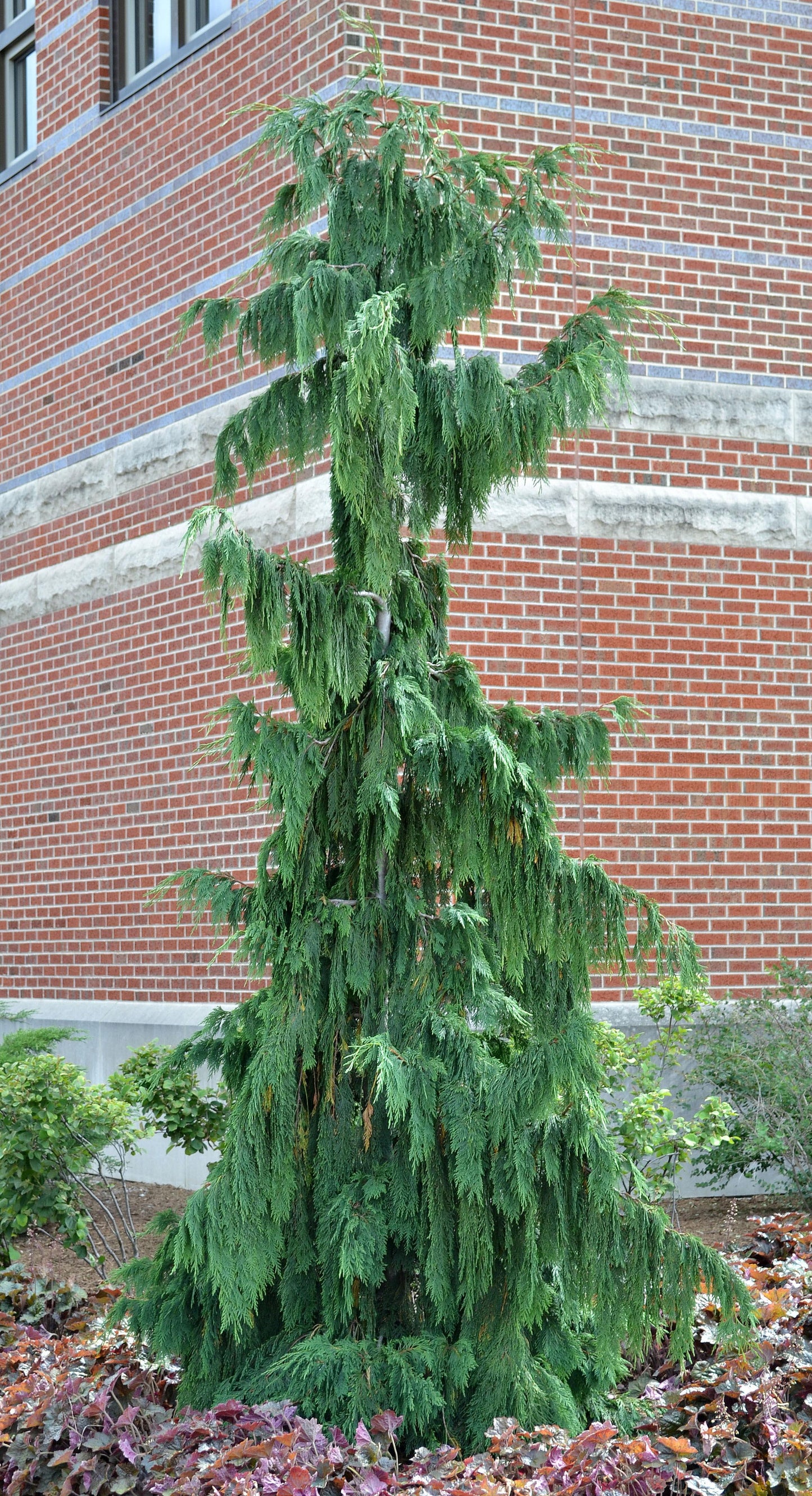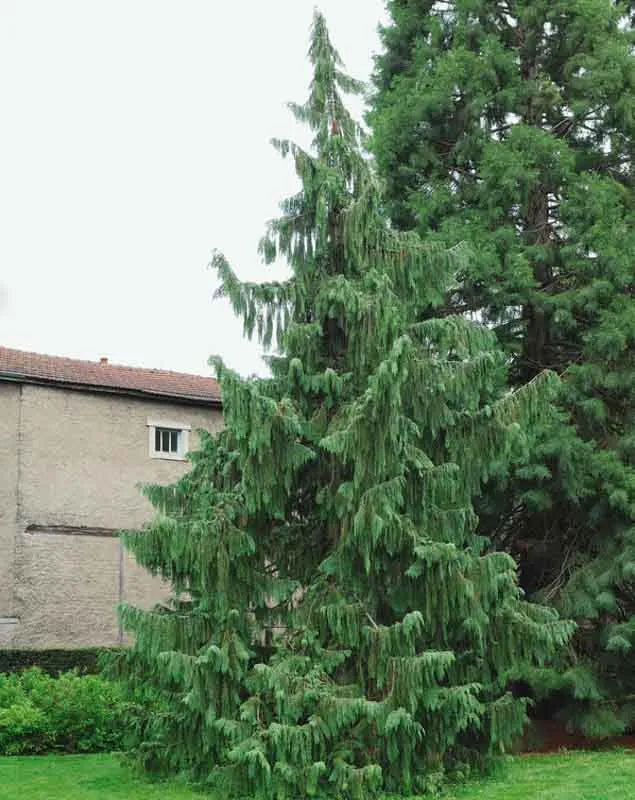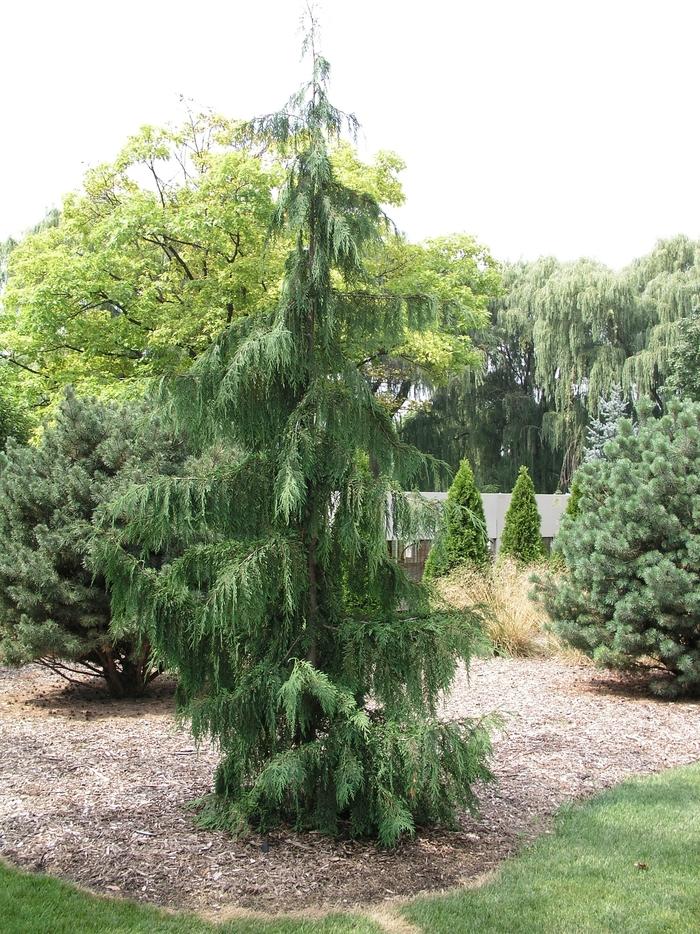1
/
of
23
Weeping Alaskan Cedar-Pendula-Unique texture for landscapes 12/14' h B&B
Weeping Alaskan Cedar-Pendula-Unique texture for landscapes 12/14' h B&B
Regular price
$3,304.00 USD
Regular price
$4,295.20 USD
Sale price
$3,304.00 USD
Unit price
/
per
Shipping calculated at checkout.
SKU:nte0470-redcrocus
Couldn't load pickup availability
Chamaecyparis nootkatensis 'Pendula'
Description
The Chamaecyparis nootkatensis 'Pendula', commonly known as the Weeping Alaskan Cedar, is a striking evergreen conifer known for its graceful, weeping branches and elegant, pyramidal form. Its soft, bluish-green foliage adds a unique texture to any landscape, making it a popular choice for ornamental planting.
Suggested Uses
This plant is ideal for use as a specimen tree in gardens, parks, or large landscapes. Its distinctive form makes it a focal point in mixed borders or as a standalone feature. It can also be used to create privacy screens or windbreaks due to its dense foliage.
Plant Details
-
 Botanical Name: Chamaecyparis nootkatensis 'Pendula'
Botanical Name: Chamaecyparis nootkatensis 'Pendula' -
 Common Name: Weeping Alaskan Cedar
Common Name: Weeping Alaskan Cedar -
 Size & Growth: Typically grows 20-35 feet tall and 10-15 feet wide
Size & Growth: Typically grows 20-35 feet tall and 10-15 feet wide -
 Hardiness Zones: 4-7
Hardiness Zones: 4-7 -
 Foliage Type: Evergreen
Foliage Type: Evergreen -
 Bloom Time: Non-flowering
Bloom Time: Non-flowering -
 Growth Rate: Moderate
Growth Rate: Moderate -
 Light Requirements: Full sun to partial shade
Light Requirements: Full sun to partial shade -
 Attracts Pollinators: No
Attracts Pollinators: No -
 Indoor Friendly: No
Indoor Friendly: No -
 Container Friendly: No
Container Friendly: No -
 Deer Resistant: Yes
Deer Resistant: Yes -
 Pet Warning: Non-toxic to pets
Pet Warning: Non-toxic to pets -
 Fragrant: No
Fragrant: No -
 Cut Flower: No
Cut Flower: No -
 Grows Well With: Rhododendrons, Azaleas, and Ferns
Grows Well With: Rhododendrons, Azaleas, and Ferns
Care Tips
-
 Planting Instructions: Plant in well-drained soil, ensuring the root ball is level with the soil surface
Planting Instructions: Plant in well-drained soil, ensuring the root ball is level with the soil surface -
 Soil Moisture: Keep soil consistently moist but not waterlogged
Soil Moisture: Keep soil consistently moist but not waterlogged -
 Soil Type: Prefers acidic, loamy, well-drained soils
Soil Type: Prefers acidic, loamy, well-drained soils -
 Humidity: Tolerates a range of humidity levels
Humidity: Tolerates a range of humidity levels -
 Pruning Instructions: Minimal pruning required; remove dead or damaged branches as needed
Pruning Instructions: Minimal pruning required; remove dead or damaged branches as needed -
 Winter Care: Mulch around the base to protect roots in colder climates
Winter Care: Mulch around the base to protect roots in colder climates -
 Planting Depth: Plant at the same depth as the nursery container
Planting Depth: Plant at the same depth as the nursery container -
 Fertilization: Fertilize in early spring with a balanced, slow-release fertilizer
Fertilization: Fertilize in early spring with a balanced, slow-release fertilizer -
 Special Care: Protect from strong winds to prevent branch damage
Special Care: Protect from strong winds to prevent branch damage
Share
